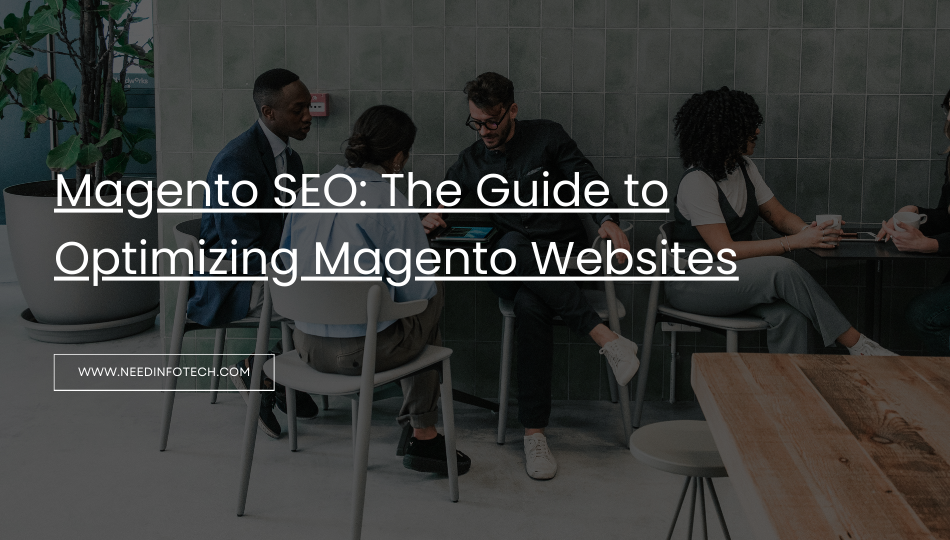When it comes to running a successful online business, one of the key factors that can make or break your visibility and growth is search engine optimization (SEO). In today’s highly competitive digital landscape, it is crucial to employ effective SEO strategies to ensure your website stands out from the crowd and attracts organic traffic. In this comprehensive guide, we will delve into the world of Magento SEO and provide you with invaluable insights and techniques to outrank your competitors and claim the top spot on Google’s search results.
Understanding the Power of Magento SEO
Magento, the popular e-commerce platform, is renowned for its robust features and flexibility. However, to fully leverage its potential, you must optimize your Magento website for search engines. Implementing Magento SEO best practices will help search engines recognize and rank your website higher, resulting in increased visibility, organic traffic, and ultimately, higher conversion rates.
1. Keyword Research: Laying the Foundation
The first step in any successful SEO campaign is comprehensive keyword research. By identifying and targeting the right keywords, you can align your website content with the search intent of your target audience. Start by brainstorming relevant keywords related to your products, services, and industry. Utilize keyword research tools like Google Keyword Planner, SEMrush, or Moz to identify high-volume, low-competition keywords.
2. On-Page Optimization: Perfecting the Details
Optimizing your on-page elements is crucial for Magento SEO success. Pay close attention to the following factors:
Title Tags and Meta Descriptions
Craft compelling and keyword-rich title tags and meta descriptions for each page. These elements appear in search engine results and play a vital role in attracting clicks. Ensure they accurately represent the content on each page and entice users to click through to your website.
URL Structure
Create clean and search-engine-friendly URLs that include relevant keywords and reflect the content of each page. Avoid long, convoluted URLs and opt for concise, descriptive ones instead.
Header Tags (H1, H2, H3, etc.)
Organize your content with proper header tags. Use H1 tags for main headings, and H2, H3, and subsequent tags for subheadings. Incorporate relevant keywords into your headers to signal their importance to search engines.
Image Optimization
Optimize your product images by using descriptive file names and adding alt text that includes relevant keywords. This ensures search engines can understand and index your images, improving your chances of ranking in image search results.
3. Technical Optimization: Enhancing Performance
Magento websites often require technical optimization to improve site speed and overall performance. Address the following aspects to ensure a seamless user experience and better search engine rankings:
Page Speed
Optimize your website’s load times by minimizing code, compressing images, and leveraging caching techniques. Users and search engines favor fast-loading websites, and slow page speed can negatively impact your rankings.
Mobile Responsiveness
With mobile usage on the rise, having a mobile-responsive website is no longer an option—it’s a necessity. Ensure your Magento website adapts flawlessly to different screen sizes and provides an optimal user experience across devices.
XML Sitemap
Generate and submit an XML sitemap to search engines. This file helps search engine crawlers discover and index all the pages on your website, ensuring they are included in search results.
Canonical URLs
Implement canonical URLs to address duplicate content issues that may arise due to Magento’s dynamic page generation. Canonical tags help search engines understand which version of a page should be indexed and displayed in search results.
4. Content Strategy:
Engaging and Informative Content is king, and this adage holds true for Magento SEO as well. Develop a comprehensive content strategy that aligns with your target audience’s needs and preferences. Incorporate the following elements for optimal results:
Product Descriptions
Craft unique and compelling product descriptions that highlight the key features, benefits, and differentiators of your products. Avoid duplicate content and strive for originality to stand out from your competitors.
Blogging and Resources
Maintain an active blog and resources section on your Magento website. Regularly publish informative, keyword-rich articles, guides, and tutorials that address your audience’s pain points and provide valuable insights.
User-Generated Content
Encourage customers to leave reviews, testimonials, and comments on your Magento website. User-generated content not only adds credibility and social proof but also generates additional keyword-rich content for search engines to crawl.
5. Link Building: Building Authority
A strong backlink profile is crucial for Magento SEO success. Build high-quality, authoritative backlinks from relevant websites within your industry. Focus on:
Guest Blogging
Contribute informative and engaging guest posts to reputable websites within your niche. Include relevant links back to your Magento website to drive referral traffic and improve your backlink profile.
Influencer Partnerships
Collaborate with influencers and industry experts to showcase your products and services. These partnerships can lead to valuable backlinks, increased brand exposure, and expanded reach.
Social Media Engagement
Leverage social media platforms to promote your Magento website and attract quality backlinks. Engage with your audience, share valuable content, and foster relationships with influencers and industry leaders.





